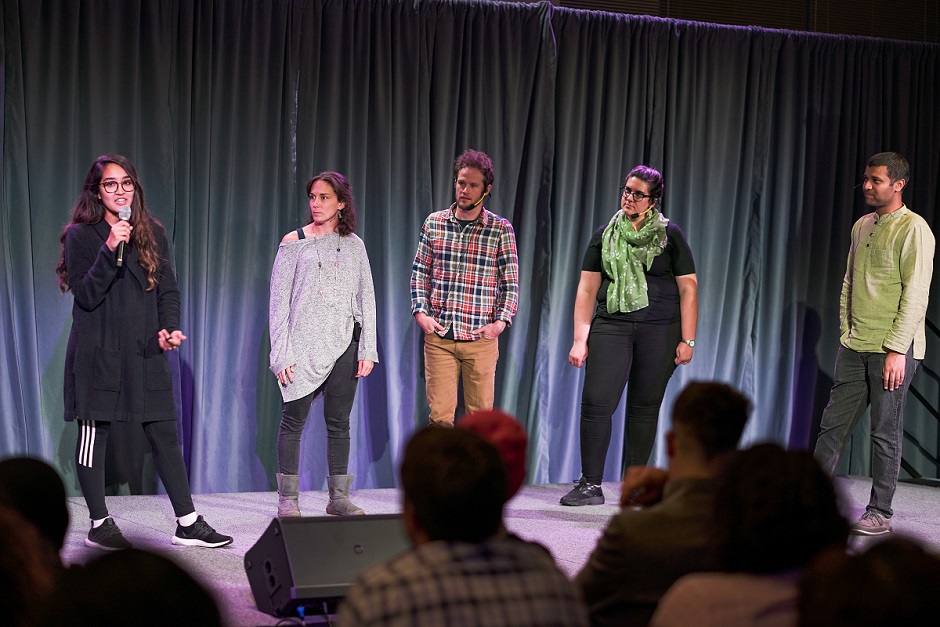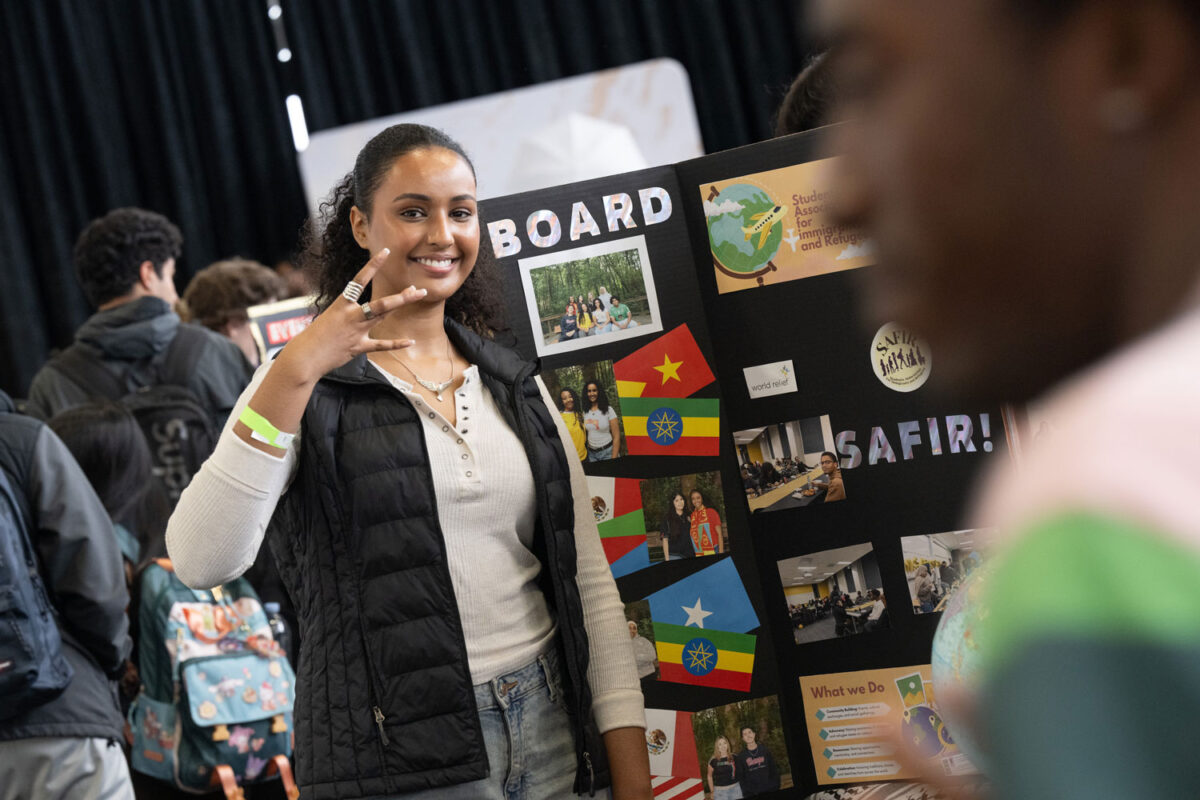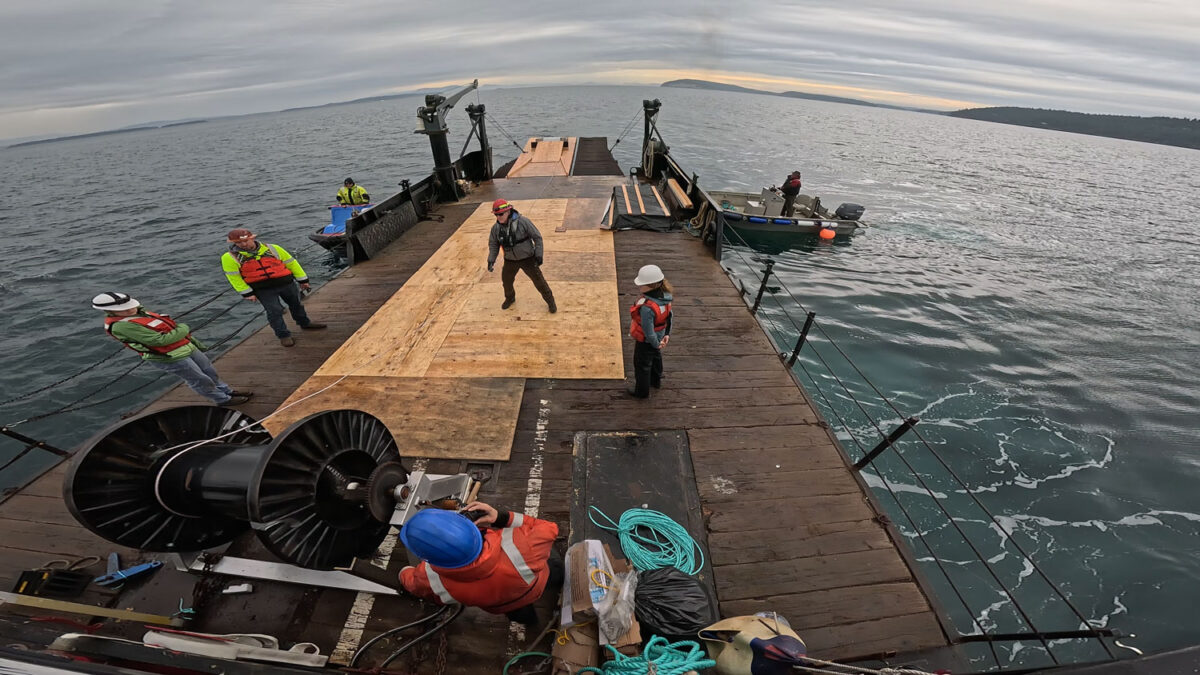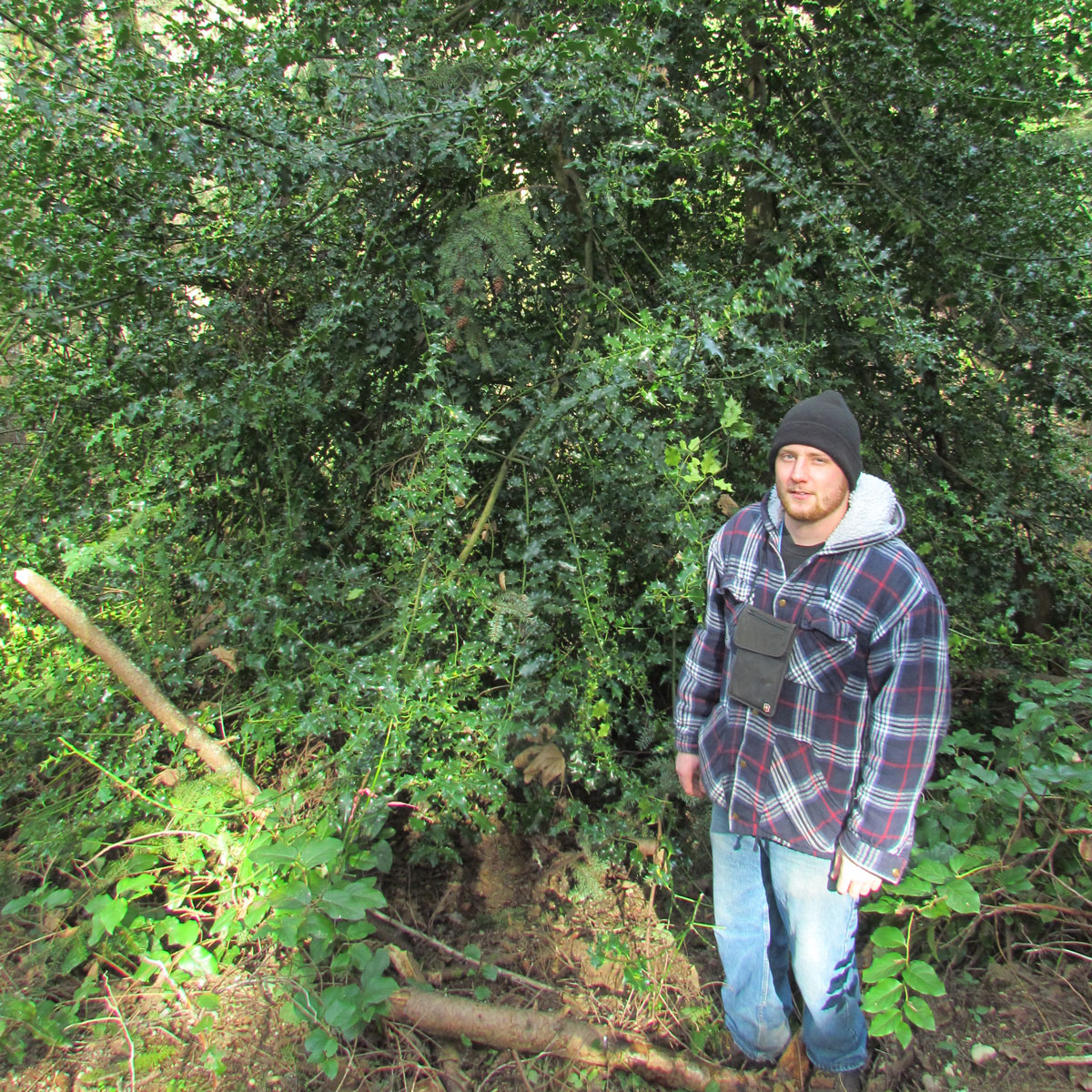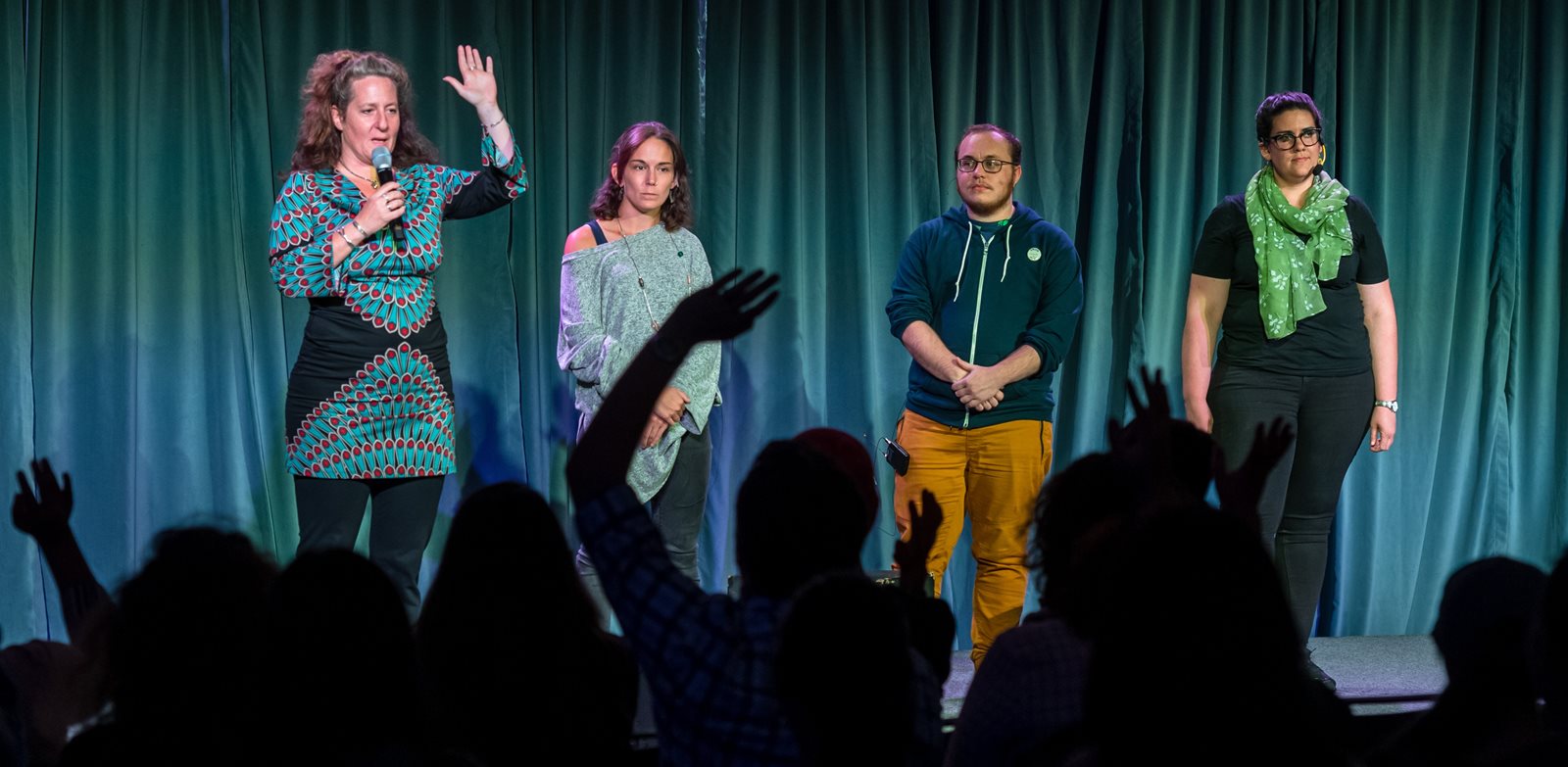
Here’s the scene: A group of friends is talking about a barista they’ve seen who doesn’t appear masculine or feminine.
“I guarantee you it’s a guy,” says one.
“Nah, it’s a girl. I’d put money on it,” says another.
Then, they tell one of the friends — who hasn’t seen the barista yet — to take a look for himself. He heads off.
Does anything in this scenario bother you? If you were one of the friends or a bystander who overheard it, what should you have said?
Cringeworthy scenarios
The unseen barista of unknown gender was one of three scenarios presented at an interactive theater night Sept. 26 in the Activities & Recreation Center. It was a Welcome Week event sponsored by the University of Washington Bothell’s Social Justice Organizers (SJOs), who are part of Student Engagement & Activities.
Five graduate student actors from the University of Oregon and a moderator in a troupe known as Rehearsal for Life performed their “theater of the oppressed” under the headline “That’s What I Should Have Said!”
The moderator discussed the various scenarios with the audience of about 20 UW Bothell students and then gave them opportunities to interact. Anyone watching as a scenario was repeated could shout “Stop!” and climb on the stage and intervene as one of the actors.
“We probably have all been in these situations where we feel a little uncomfortable with what’s happening and don’t know how to intervene or what to say in those moments,” said Benjamin Lopez, the SJO program manager. “This gives people an opportunity to practice doing that.
“If and when they end up in these situations in the future,” he said, “they might be more prepared and more comfortable because they have practiced.”
Care, don’t stare
One student who shouted “Stop!” and intervened was Marwa Popal, a senior in Culture, Literature & the Arts. She stopped the friend in the first scenario from going off to stare at the barista and said it was “probably not a good idea.” Instead of making the barista feel uncomfortable, get to know the person as a human being, she suggested.
The troupe also interacted with the audience in the two other scenarios. In one, a café worker is sexually harassed by a customer who asks her what time she gets off work. Later, her friends in the scenario tell her she led him on. One student who jumped into the scene took the role of another customer and told the harasser he was making the worker uncomfortable. Another student who stepped into the scene urged the friends to be more supportive.
In the third scenario, all of the friends are talking about relaxing after a hard week except for one who is distraught by the treatment of undocumented immigrants. Her friends tell her not to bring them down with politics. “Stop!” said a student who intervened and acted as another friend. The student said the distraught woman’s feelings were valid and that the other friends should have more compassion.
Educational moments
In discussions as the scenarios played out, the moderator and members of the troupe said an intervention could shift potentially distressing situations to moments when people could support a friend or learn to be more empathetic.
Popal said the students who watched and interacted in the scenarios may feel impelled to take action in real life.
“I think it was probably a perfect way to start the school year,” she said.
